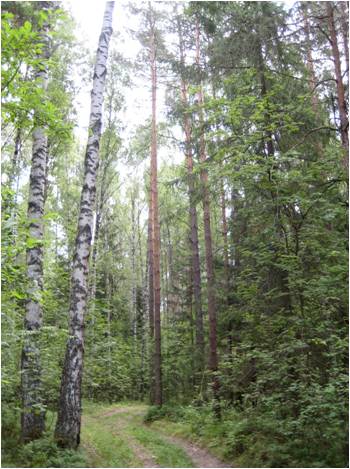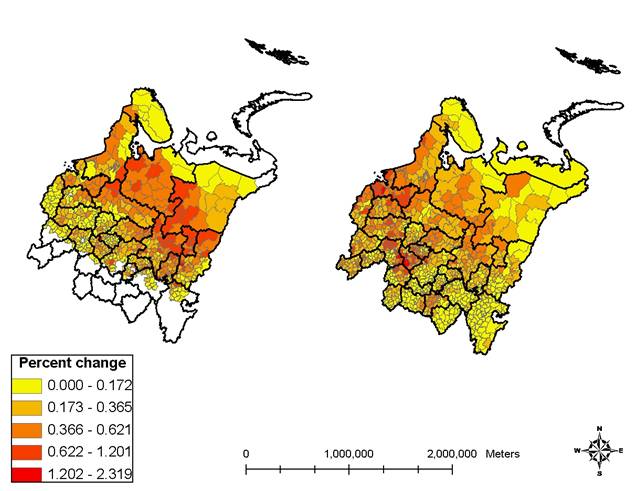Posted 08/9/10
Radical changes to property rights occurred across Russia after the collapse of the Soviet Union, including the privatization of timber firms and the use of lease contracts for harvesting. The effectiveness of these changes, however, is contingent on supporting governance systems and institutions. Weak or insecure property rights make it difficult for actors to form long-term commitments to managing natural resources and affect the production and supply of these resources. By comparing 895 districts within 33 administrative units in European Russia, Kelly Wendland shows that timber harvesting is responsive to economic factors but that poor governance has affected investment decisions across the region.

Russia contains 20 percent of the world’s forests or close to 809 million hectares (ha) of forestland in 2005 and is an important supplier of timber and non-timber forest products for the world. After the collapse of the Soviet Union in 1991, massive restructuring of the country’s political and economic system changed the management of and access to Russia’s resources, including its vast timber reserves. A major component of the restructured forest laws included privatizing the logging industry and awarding short term timber leases (five-ten years); most of Russia’s forests remained publicly owned. Neoclassical economic theory would suggest that the privatization of firms and use rights would improve the management of that resource and bring efficiency to market transactions. Within European Russia, however, the privatization of the logging industry has not lead to efficient harvesting and an increase in illegal logging has been documented across the region. Kelly Wendland explores the reasons for this counter-intuitive result in her dissertation work, focusing on the impact that governance institutions had on secure property rights and thus logging practices.To test the effects of governance and corruption on total forest disturbance and illegal logging within post-Soviet Russia, 895 districts within 33 administrative units were chosen within European Russia. European Russia supplies approximately 60 percent of the country’s timber harvest. Because of potential misreporting in Russia’s national statistics on forest harvesting, remote sensing data on forest disturbance within each of the districts was used. Remote sensing data was acquired from secondary sources that had generated forest disturbance maps from Landsat satellite imagery in the years 1990-2000 and 2000-2005. The annual percent of forest disturbance (Figure X) show changing patterns between the two time periods and indicate a shift in where timber harvesting occurred. In general these patterns reflect the transition to a market economy where higher transport costs made harvesting in remote areas uneconomical.

In this study, regression analysis was used to relate forest cover, slope, distance to markets, and road density at the district-level to observed forest disturbance. To test the effects of governance on harvesting decisions three regional-level measures were used: an investment risk index, a democracy index and an index of government transparency. Wendland and her team find that harvesting decisions followed economic theory: more harvesting occurred where there was more forest cover, better access to timber, and lower transportation costs. They also found that regions that were more democratic and had more transparent governments experienced more harvesting.While cross-country studies on governance and natural resource use exist, Wendland and her team believe this is the first study to look at the impacts of multiple governance measures on property rights and industrial logging within the same country. The results from this research will be important not only for forest management in Russia but should have broader implications for forest management in other countries with weak governance systems. Wendland hopes to expand her research on the impact of governance on natural resource use in post-Soviet Russia by exploring it impacts on protected areas.”
Story by James Burnham
